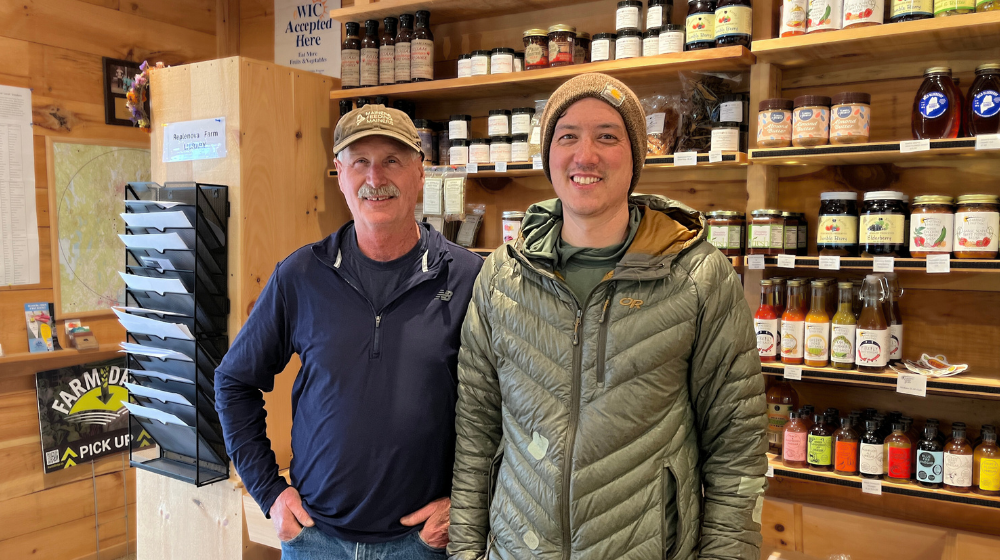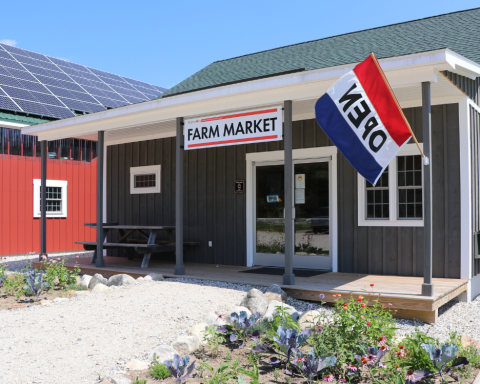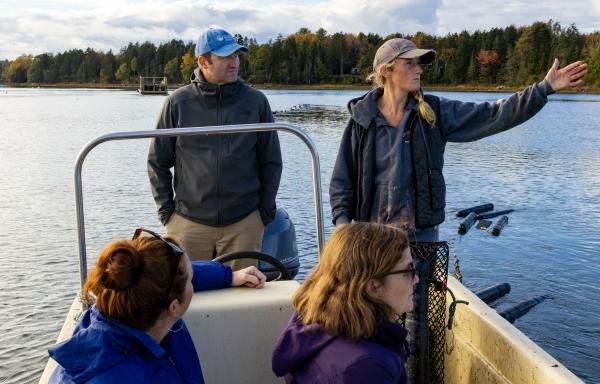
Retired biochemist Gary Goodrich founded Replenova Farm in 2015, after decades spent growing healthy produce as a pastime. He had sold his Portland biotech company and was ready to dive into organic farming. In 2019 he purchased land and relocated the farm to Durham, Maine, where he opened for business with a brand-new farm store and commercial kitchen alongside fields, high tunnels, and a big red barn. Gary knew from the beginning that he wanted to power the farm using renewable energy, so installing solar panels on the barn roof was a goal he prioritized when establishing the new farm.

Though Gary knew from the start that he wanted to power the farm with clean energy, he says he didn’t realize how quickly the investment would pay for itself. An $8,000 USDA REAP grant helped, with the project costing a total of over $52,000. Despite the significant upfront investment, by 2024 the project had paid for itself in terms of money saved on energy bills. “The payback rate is insane!” says Gary. “We saved so much on energy costs that this system paid for itself within a few years. From now on, it’s like money coming back to the business.”
Replenova’s 23kW system powers the entire business, including the fully electric commercial kitchen and retail store. With products ranging from organic vegetables, meats, dairy products, baked goods, to ready-to-eat foods made on site, the retail operation has significant energy needs. Everything from the shop coolers to the ovens ("energy hogs," Gary calls them) to the walk-in cooler out back run on solar energy, which is also used to heat the farms high tunnels. The barn's rooftop photovoltaic panels typically generate enough energy to power the full operation most of the year.
In addition to relying on solar energy, Replenova Farm utilizes other strategies to minimize its carbon footprint. The year-round business uses plant-based, compostable packaging. These products are more expensive than typical materials, but Gary believes they are better for the environment and for his customers. “There hasn’t been enough research yet into the effects of plastics on health,” he notes, “and from an environmental standpoint, plastic is not sustainable.” Replenova’s farm store also sells products from other local agricultural producers, but relies on those nearby to minimize the carbon impact of transportation.
As a lifelong businessman, Gary knows how important it is for a business to manage expenses even while marketing products. He zeroes in on the cost savings farmers can reap if they invest in renewable energy, saying “Using solar energy is a big step towards making a farm financially sustainable. Without that, the other aspects of sustainability don’t matter.”
About Replenova Farm
Located at 1252 Royalsborough Road in Durham, the Replenova Farm store is open year-round, Tuesday-Saturday. The farm store carries farm-fresh produce, Maine specialty foods, prepared/take-out foods (including breakfast and lunch sandwiches), and baked goods. Replenova offers a takeout menu for online or in-person orders. The farm also wholesales products to markets and restaurants in the greater Portland area.
Replenova Farm's mission is to be a sustainable organization with regard to its employees, community, and the environment. The farm regularly donates produce to the Good Shepherd Food Bank for its Mainers Feeding Mainers program.

